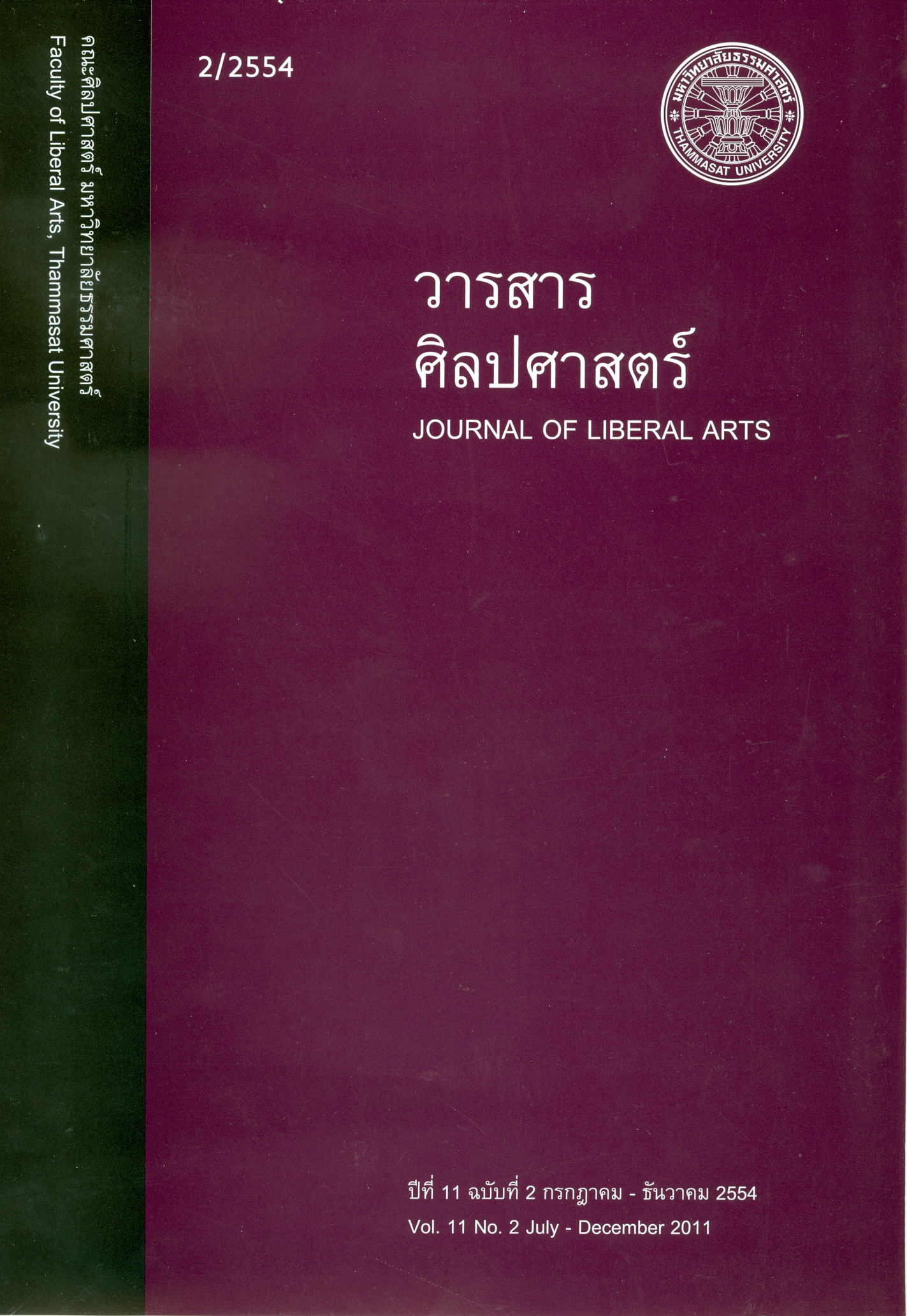นิวตันและไลบ์นิทซ์: ความเหมือนที่แตกต่าง
Main Article Content
บทคัดย่อ
ข้อถกเถียงเรื่องแคลคูลัสเป็นการโต้แย้งระหว่างเซอร์ไอแซก นิวตัน (ค.ศ.1642-1727) กับกอทท์ฟรีด วิลเฮล์ม ไลบ์นิทซ์ (ค.ศ.1646-1716) ช่วงปลายคศวรรษที่ 17 เกี่ยวกับการอ้างสิทธิว่า ใครเป็นผู้คิดค้นคณิตศาสตร์สาขาแคลคูลัสก่อนถึงแม้ว่าผลงานของทั้งคู่จะมีกรอบคิดและวิธีการที่เหมือนกันบางประการ แต่สิ่งสำคัญยิ่งกว่าคือ การเข้าใจต้นตอความคิดของบุคคลทั้งสองซึ่งพัฒนาเป็นแคลคูลัสในภายหลัง ความคิดของนิวตันเริ่มต้นจากการกระจายทฤษฎีบททวินามในรูปสมการพีชคณิตและพยายามประยุกต์ใช้ผลลัพธ์ดังกล่าวกับปรากฏการณ์ธรรมชาติ อันได้แก่ ทฤษฎีแรงดึงดูดสากล ส่วนไลบ์นิทซ์ ศึกษาอนุกรมอนันต์จากรูปสามเหลี่ยมฮาร์มอนิกจากนั้นจึงเปรียบเทียบผลที่ได้กับสมบัติทางเรขาคณิตของเส้นโค้งและเส้นตรง นอกจากนี้ ทั้งคู่ยังมีมุมมองเรื่องปรัชญาธรรมชาติแตกต่างกันด้วย ผลคือนิวตันกลายเป็นที่รู้จักในฐานะนักวิทยาศาสตร์ผู้ยิ่งใหญ่ สามารถเปิดเผยกฎธรรมชาติซึ่งเป็นภาษาคณิตศาสตร์ ขณะที่ไลบ์นิทซ์เป็นที่รู้จักในฐานะนักคณิตศาสตร์และนักปรัชญาซึ่งไม่ได้พยายามประยุกต์ใช้คณิตศาสตร์กับโลกกายภาพแต่อย่างไร ดังนั้น นอกเหนือจากความรับรู้ทั่วไปว่า นักคิดทั้งสองเป็นผู้สร้างองค์ความรู้ประเภทเดียวกันแล้ว การพยายามเข้าใจพื้นความคิดทางคณิตศาสตร์และปรัชญาของทั้งคู่จะเป็นประโยชน์ในการแยกแยะความแตกต่างทางความคิดของบุคคลทั้งสองได้ดียิ่งขึ้น
The famous calculus controversy was a debate between Sir Isaac Newton (1642-1727) and Gottfriend Wilhelm Leibnitz (1646-1716) around the end of the 17th Century, regarding the claim for priority credit in inventing a branch of mathematics called calculus. Although there was some sameness in their thoughts and methods, it is crucial to understand the origin of their ideals which were later developed as the calculus. Newton’s ideas came from the algebraic expression of the binomial theorem and the attempt to apply that result to a natural phenomenon-the theory of universal gravitation. But Leibnitz studied infinite series derived from the harmonic triangle and then compared the results with the geometrical properties of arcs and lines. Furthermore, they also had different views on natural philosophy. As a result, Newton has become known as the greatest of scientists who discovered the mathematical laws of nature while Leibnitz is now recognized as a mathematician and a philosopher who never aimed to apply mathematics to the physical world. Apart from the general recognition that both thinkers created the same kind of knowledge, the attempt to understand their profound mathematical and philosophical grounds is of great benefit in distinguishing them.


